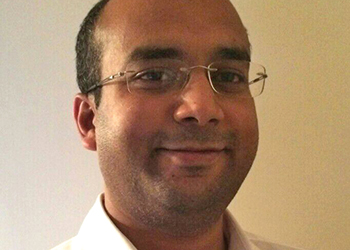
Technology, luxury travel, family holidays and localisation are here to stay even as changing demographic and economic realities shape our markets
As the Arabian Travel Market (ATM) gets under way this month in Dubai, the industry will be looking at several trends that are having a profound impact across the world and how the Gulf region stands to benefit from them.From freer travel to expo tourism and luxury travel to the China syndrome, here are 10 top trends to watch out for:Visas made easierTourism authorities everywhere in the world are making it easier for tourists to enter their countries and the Gulf states are no exception.In the UAE, the UK now offers super-priority visas at its application centres in Abu Dhabi and Dubai, while Emiratis can already use the electronic visa waiver, which offers them visa-free travel if they register online at least 48 hours before their departure to the UK, for a visit up to six months. According to the Global Destination Index (GDI) report, compiled by the Pacific World, ease of visas is one of the factors for UAE seeing more events. Harsha Krishnan, Strategic Development Director at Pacific World, says: 'The exemption of Eastern European countries from UAE tourist visas has enabled meeting planners to consider Dubai as a more realistic and less complicated destination for their events in terms of logistics.' Bahrain too has opened its doors, and now offers visas on arrival for 66 nationalities and three-month multiple entry visas for GCC residents and citizens of 102 countries under a new e-visa initiative.Oman meanwhile is reportedly set to introduce a new e-visa system in an effort to boost tourism.
 |
Buchanan… explosion in halal travel |
The China syndromeWith the euro in decline and the rouble not looking good, the world is looking at China to make up the numbers.A prime example of China’s growing clout as a tourism force was when a 14,500-strong delegation from Chinese company Nu Skin visited Dubai on a incentive trip last year, setting a new record for corporate holidays in the UAE. China’s outbound tourism market is growing at an annual rate of 9 per cent while tourism expenditure is predicted to grow to $1.8 trillion by 2030 from $260 billion in 2012, according to a report from the Boston Consulting Group and TripAdvisor. Yogeesh Chandra executive vice-president - Hospitality, RateGain, says: 'The decline in the number of tourists from the CIS won’t worry Dubai since it is experiencing domestic growth due to ongoing preparations for Expo 2020. Dubai also is a gateway to Africa and is well positioned to capitalise on its location as a trading hub and its reputation as a safe destination.'
 |
Chennoufi… cluster tourism on the rise |
Arabising of contentFrom websites to apps that tell you the prayer timings and closest halal restaurants around the world, content marketing is turning to the language of the Arabic-speaking population in the region.Emmanuel Durou, Telecommunications, Media and Technology (TMT) director at Deloitte in the Middle East, says: 'For years we have talked about Arabic content comprising less than one per cent of the total internet content. But, this figure comes in sharp contrast, as the size of the Arab speaking population is greater than the entire US population.'He notes that the quality of Arabic content offline and online has improved, driven by significant investments from regional content players such as MBC and OSN. He credits start-ups such as Istikana who are attempting to create Arabic content hubs and portals.
Family travel The Gulf has always been known for its family travel, and at the ATM, the Mexico Tourism Board is the sponsor of the Arabian family travel theme. Family-centric travel is said to account for more than 12.5 per cent of the $1.07 trillion global tourism market, making it a key topic to focus on, the ATM organisers say.Also, a recent report by WealthX shows that 90 per cent of the world’s ultra-high-net-worth population ($30 million threshold) is married with two children so there is a good reason to be hospitable to large groups of mixed ages travelling together.
Luxury travelLuxury travel is becoming more accessible and nuanced. You can rough it out in luxury, be adventurous in style or just soak your feet in it.A 2014 YouGov report, which says that Middle East and North Africa (Mena) luxury travellers spend around $8,310 per trip, highlights the appeal of the region as a global luxury hotspot. In the survey, 69 per cent respondents agreed that luxury travel is defined by the availability of five-star accommodation as a minimum standard. They had each taken an average of 1.9 luxury holidays over the last 12 months, meaning that the region’s preponderance of upscale hotel properties is perfectly positioned to capitalise on growing demand from high net-worth travellers eager to discover new destinations. 'With no universally accepted definition of what luxury travel is, brands need to truly understand what luxury means to their customers in order to be successful,' says YouGov’s Travel and Leisure Research Director, Scott Booth.The trend includes the meetings, incentives conferences and exhibitions (Mice) sector. According to the GDI, interest in high-end exclusive activities is growing 'especially in destinations that fit the stereotype of luxury'.
 |
Chandra… technology is our friend |
RewardsTravel agents need to find a way to coexist with loyalty rewards, as almost every major card issuer has a loyalty programme that is travel related. Rather than take it as a threat, Chandra says: 'Travel agents have long helped hotels get business that would not have come to their site directly. Interestingly, as hotels have tried countering the pull towards OTAs with loyalty programmes, OTAs too have developed their own loyalty programmes.'
Cluster tourismIn mature destinations, visitors are offered not just one package but many mini ones – cruise tours, medical tours, spa breaks. Combine this with the new-found awareness about community-centric living and it is clear that a visitor may not be able to visit destinations during the same trip.Chennoufi says: 'Cluster tourism has become more common since the needs of the consumer have changed. Some tourists prefer to combine two destinations in one trip in order to save money, and therefore they may not have enough time to see all of the country but just those attractions that were selected for them.'
By Shalini Seth
